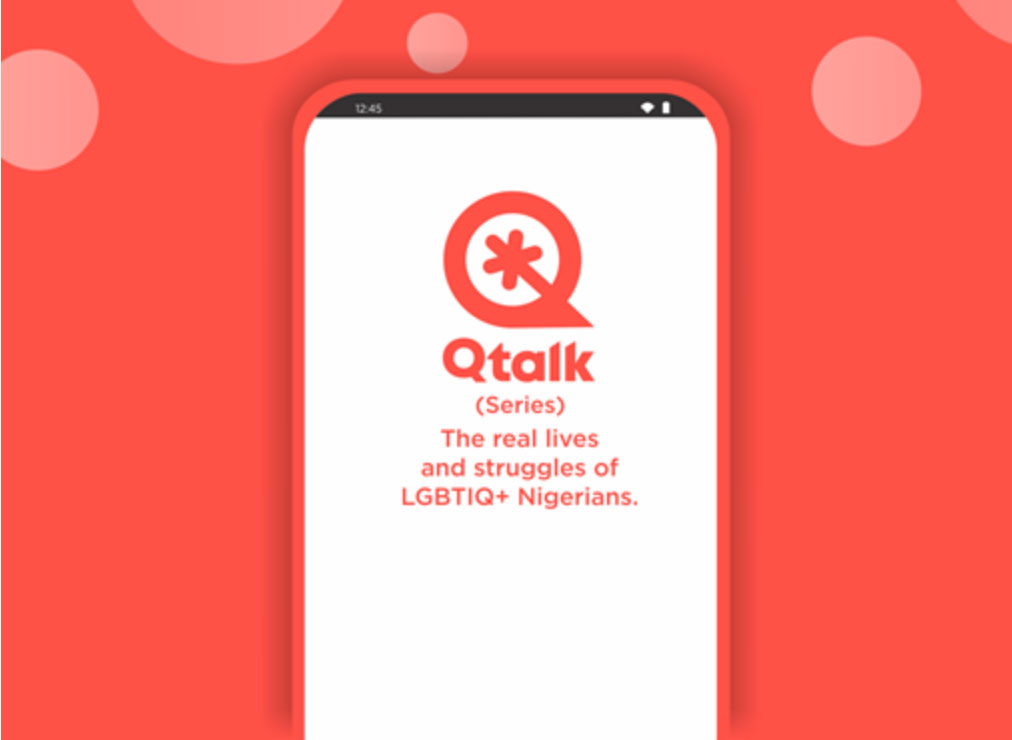From despair to resolve: How Qtalk became a bisexual man’s lifeline
Mike Daemon is the pseudonym of the founder and presenter…
His parents refused to let him attend university after learning he’s bisexual.
LGBTQ+ Nigerians benefit from the support provided by volunteer counselors via the Qtalk app, which is supported by this site and by the St. Paul’s Foundation for International Reconciliation. Download Qtalk from Google Play or the Apple Store.
This series presents their stories. For Qtalk users’ security, they are identified only with pseudonyms.

When Kachi first connected with a counselor on Qtalk, his message came late at night. “I don’t even know if talking will help,” he wrote. “My parents just found out I’m bisexual, and now everything is falling apart. I was supposed to leave for school in Canada next month. They’ve stopped everything.”
The 24-year-old, a final-year university student from Anambra State, said his parents discovered private messages between him and another man. The discovery led to a confrontation that ended with his father saying, “You’ve brought shame to this family. Forget about traveling until you fix yourself.”
By the time Kachi downloaded Qtalk, he was in a dark place. “I tried to end my life twice last year,” he confessed during his first session. “Now I’m scared that if I stay here, I’ll try again.”
The counselor, a licensed therapist trained in trauma-informed care, focused first on stabilizing his emotions. The early sessions centered on safety planning, identifying supportive contacts, and encouraging small daily routines to help Kachi regain control. “Let’s focus on what we can manage right now,” the counselor told him. “The goal isn’t to solve everything today, it’s to keep you safe and help you breathe again.”
Over the next few weeks, Kachi joined regular online sessions through the Qtalk mobile app. He described feeling isolated and angry — angry at his parents, but also at himself for not fitting into their expectations. The therapist introduced cognitive-behavioral strategies to challenge his internalized shame and taught grounding techniques for moments of panic.
Gradually, Kachi began to sound different. “I’m starting to see that my life can still have meaning,” he said in one session. “I don’t have to disappear because they don’t accept me.”
The counselor also helped Kachi explore realistic next steps about his education. Together, they developed a plan to seek alternative funding through international scholarships and LGBTQ+ support networks. “Maybe I don’t need their approval to keep moving,” Kachi said. “I can start again on my own terms.”
After six weeks of therapy, Kachi reported feeling “lighter” and more capable of managing his thoughts. He had not had suicidal ideation for several weeks and had reconnected with a small circle of friends he once avoided. “Talking here made me feel seen for the first time,” he said near the end of the final session. “I’m not cured, but I’m choosing to stay.”
The counselor closed by affirming his progress and reminding him that healing was an ongoing process. Kachi now continues his sessions biweekly, focusing on emotional resilience and self-worth.
Through Qtalk, his story reflects how timely access to mental health support, especially in contexts where sexuality and identity remain stigmatized, can help young Nigerians find hope beyond rejection and fear.
To support the Qtalk project financially, click HERE.




